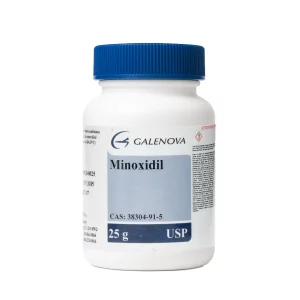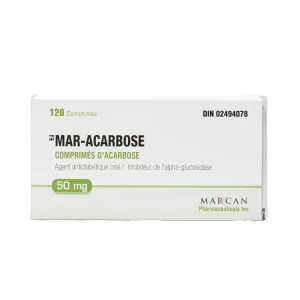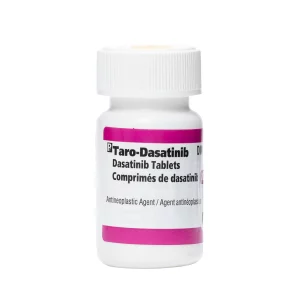Your cart is empty.
Your cart is empty.
Lifespan extension and healthy aging have become increasingly important as the global population ages. Researchers are actively seeking innovative solutions to promote longevity and improve overall well-being. One compound that has garnered attention is Selegiline, a selective monoamine oxidase B (MAO-B) inhibitor. Initially developed to treat Parkinson’s disease and major depressive disorder, Selegiline has shown promise in enhancing cognitive function and motor control.
Researchers have been exploring Selegiline’s potential to enhance longevity, sparking extensive studies. Findings indicate that Selegiline may support cellular well-being and resilience by inhibiting MAO-B, thereby reducing oxidative stress and inflammation – primary contributors to aging. Examining the link between Selegiline and anti-aging can yield valuable insights into its potential benefits. Don’t wait any longer, and buy Selegiline to boost your daily life, to support overall well-being and longevity.
Selegiline, also known as Deprenyl, is a selective monoamine oxidase B (MAO-B) inhibitor. By inhibiting MAO-B, Selegiline increases dopamine levels, a neurotransmitter crucial for motor control and mood regulation. This makes Selegiline effective in treating Parkinson’s disease, alleviating symptoms like tremors, rigidity, and bradykinesia.
Selegiline’s neuroprotective properties have sparked interest in its anti-aging potential. By inhibiting MAO-B, Selegiline reduces oxidative stress and inflammation in the brain, contributing to neurodegenerative diseases. Researchers are exploring Selegiline’s potential in promoting extended brain health and prolonged life.
Numerous scientific studies have investigated the potential of Selegiline to extend lifespan, with promising results.
Early longevity studies in animals have demonstrated the potential of low-dose Selegiline to prolong life. Dr. Joseph Knoll’s pioneering work in the 1980s showed that low-dose Deprenyl (Selegiline) increased the average lifespan in rats by 34%. Subsequent studies confirmed these findings, with low-dose Selegiline increasing average lifespan by 20-30% and improving healthspan markers. These studies highlight the potential of Selegiline to promote healthy aging and extend lifespan.
Key findings:
Selegiline has shown promise in non-rodent models, including dogs and primates. In canine studies, Selegiline improved cognitive function and reduced age-related behavioral changes. In rhesus macaques, Selegiline increased dopamine levels and enhanced motor function. These findings have translational relevance to human aging, suggesting Selegiline’s potential for treating age-related diseases, such as Parkinson’s and cognitive decline, in humans.

As humans age, dopamine levels naturally decline, while monoamine oxidase (MAO) activity increases, leading to oxidative stress and inflammation in the brain. Selegiline, a selective MAO-B inhibitor, plays a crucial role in preserving brain function and potentially slowing age-related decline. By inhibiting MAO-B, Selegiline increases dopamine levels, promoting improved mood, cognition, and energy levels over time.
Potential Benefits of Selegiline:
Low-dose Selegiline, ranging from 1-5 mg daily, is significantly lower than therapeutic doses for Parkinson’s and depression. Researchers use lower doses for longevity and anti-aging to avoid overstimulation. The goal is to support brain health and neuroprotection without over-activating the brain’s reward system. This approach follows the principle of “hormesis,” where a low-level stressor activates cellular pathways promoting resilience and longevity. By optimizing the dose, researchers can harness Selegiline’s benefits for longevity while minimizing risks, striking a balance between brain health support and adverse effect mitigation.

Selegiline stands out from other studied life-extension agents, such as rapamycin, metformin, and resveratrol, due to its unique mechanism of action. While these agents primarily target metabolic pathways, Selegiline focuses on neurological pathways, specifically inhibiting monoamine oxidase B (MAO-B) to increase dopamine levels and promote neuroprotection.
Comparison with other life-extension agents:
Combining Selegiline with metabolic-targeting agents may provide a comprehensive approach to promoting healthy aging and extending lifespan.
Selegiline enhances lifespan by inhibiting MAO-B, increasing dopamine, and promoting neuroprotection, reducing oxidative stress and inflammation.
The optimal dose of Selegiline for longevity is 1-5 mg/day, with 2.5 mg/day being a commonly recommended dose for anti-aging benefits. But consult your healthcare professional.
Human research is limited, but early studies suggest Selegiline’s neuroprotective effects may support a longer health span and potential longevity.
Selegiline is generally considered safe for long-term use, but monitoring and medical supervision are recommended for anti-aging purposes.
Selegiline is generally considered safe for healthy adults without Parkinson’s, but individual tolerance and monitoring are essential since it is not FDA-approved.


Minoxidil 25mg - Oral vasodilator for blood pressure management. Cardiovascular foundation support, pharmaceutical-grade standards, expert monitoring required.

Acarbose 50mg 120 Tablets - Gentle introduction to glucose control. Three-times daily with meals, precision-formulated tablet strength.

Dasatinib 20mg 60 Tablets - Flexible pediatric-strength dosing option. USP standards compliance, anytime administration, gradual increase capability.
Unlock savings on bundles and elevate your online experience today!